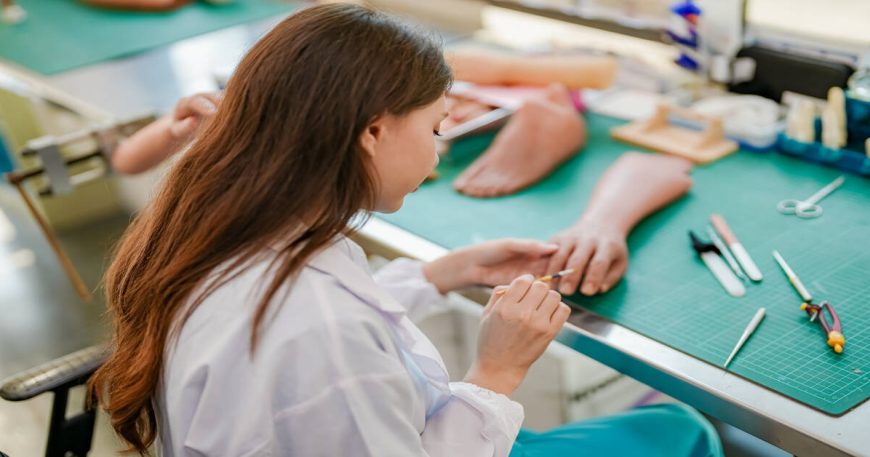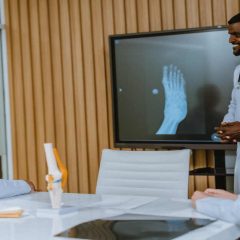
How Can Podiatrists Unlock Advanced Professional Development Resources?
In the dynamic and ever-changing industry of the podiatrist, continued education is crucial in order to develop the practitioners and give them the best knowledge to help them deliver the best. Continuously continuing education allows podiatrists to be aware of all the latest developments of new treatment methods and technologies so that they are able to efficiently address the needs of their patients. This blog discusses some educational tools that can be used by podiatrists and their significance in professional development and patient outcomes.
The Significance of Life-long Learning in Podiatry
Keeping abreast of developments
The area of Podiatry is broad with regard to the variety of conditions and treatment of the foot and ankle. The field is evolving all the time, with new research discoveries, new technologies, and the changing best practice. To keep up with these developments, podiatrists need to engage in continuous learning.
Improving Patient Care
Better patient outcomes are achieved by the increased knowledge and skills. Under these circumstances, better-educated podiatrists can be able to offer proper assessment, diagnosis and treatment options, thereby benefiting their patients.
Compliance with Regulatory Requirement
Most states and professional bodies demand that podiatrists undertake continuing education courses so that they are able to sustain the licenses and certifications. This need emphasizes the need to continue with professional development in the field.
Promoting the growth of professionals.
Continued learning will enable podiatrists to widen their knowledge base and venture into new areas of specialty in their professional development and career elevation.
Educational Resources in Podiatrics
Professional Associations
Professional association membership can be considered one of the most efficient methods of accessing educational resources by the podiatrist. There are many advantages to associations like the American Podiatric Medical Association (APMA), and even the American College of Foot and Ankle Surgeons (ACFAS). These associations offer certified continuing education courses in a wide range of topics, including surgical methods as well as the management of diabetic foot. They also provide webinars and online learning modules which enable the podiatrists to learn at their own pace. The annual conferences increase the learning process because of networking opportunities and practical workshops.
Virtual Classrooms and Degrees
There are a number of internet sites that provide courses that are specifically designed to serve as a podiatrist. There are also websites such as MedBridge, Podiatry Today, and Coursera that offer specialty certifications and allow podiatrists to improve their qualifications in other fields such as orthotics and sports medicine. Online courses are specifically advantageous because a practitioner is able to study at his/her own pace, and it is easier to incorporate education and work tasks. For those looking to deepen their expertise in emerging clinical methods, exploring resources on podiatry innovative treatments can be particularly valuable. Active learning and use of knowledge involves interactive aspects such as videos and quizzes.
Journals and Publications
It is also important that podiatrists keep up to date with various professional journals and publications. Such journals as the Journal of the American Podiatric Medical Association (JAPMA) that contains research articles and clinical studies involving the practice of podiatrics and the journal of Foot and Ankle Specialist that emphasize clinical and surgical practice of foot and ankle are recommended. By subscribing to these journals, the podiatrist will be able to obtain research and get in-the-know of current developments in their practice.
Brainstorming and Practical Training
The most common way to improve practical skills is to attend workshops and hands-on training sessions. Several organizations have skills workshops, which are dedicated to particular methods (casting and suturing), and practitioners can improve their skills in a regulated setting. It is also offered in simulation training whereby real-life situations will imitate the process and offer practice to the podiatrists without causing any harm to the patients.
Mentorship and Mentee Learning
Formation of the mentorship association with seasoned practitioners can greatly impact on the knowledge and skills of a podiatrist. Mentorship offers counseling, support and networking and career development. Older practitioners who have gone through the career ladder can proffer pertinent insights and suggestions to the younger practitioners. Also, joining peer learning groups will help to share knowledge and solve certain issues with the help of other podiatrists.
Community and Online Forums
Online communities and forums can also be used to provide good experience to podiatrists who need educational materials. Special websites such as Podiatry Arena and discussion boards in LinkedIn provide an opportunity to discuss clinical cases, ask questions, share experience, and discuss the questions with peers. Such communities become the place of sharing the resources, as the members can share articles and studies that can increase knowledge and skills.
Conclusion
Practitioners in the constantly changing field of podiatry need to engage in continuous learning to keep abreast with the constantly changing landscape of the field, better patient care and professional growth. Through numerous educational sources, such as professional associations, online courses, journals, workshops, mentorship, and community forums, the podiatrist can successfully improve his/her knowledge and skills. Adoption of a culture of lifelong learning not only serves the individual practitioner well but also serves the field of practice well in the end resulting in improved patient outcomes and a stronger healthcare system.
(FAQs)
In which forms of continuing education are podiatrists required?
In order to retain their licensure, podiatrists are usually required to take a specified amount of continuing education hours annually. This is usually through attending workshops, online courses and professional conferences.
Where do I get online courses that are particular to podiatry?
There are numerous credible institutions that provide the podiatrist to take specialized courses, including the American Podiatric Medical Association. They may find useful resources by searching their websites or through such platforms as MedBridge or Coursera.
What are the advantages of mentorship to podiatrists?
Mentorship gives advice, encouragement and networking. Best practices and career development are some of the aspects that could be provided by experienced mentors to the newer practitioners to improve the learning experience.
Through these educational tools, podiatrists can be guaranteed that they will be at the top of their profession with the knowledge and skills to deliver care that is of excellent quality to their patients.




